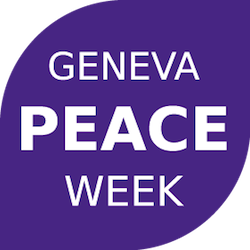E-caravan for peace: Promoting e-commerce in conflict and post-conflict situations
13 Nov 2017 01:00h
Event report
Made by Women (MbW) is a Syrian-based social enterprise that is responsible for an improvement in the livelihoods of 100 women. This was achieved through international sales of the products made by these artisans. These sales, in turn, were made possible through knowledge of digital commerce tools. In this launch, sponsored by the International Trade Center (ITC) and the Permanent Mission of Japan, MbW showcased their products and discussed their experience.
Ms Dorothy Tembo, Deputy Executive Director, ITC, spoke first. She stated that the event brought together four different goals:
- advancing women’s economic empowerment;
- addressing the issue of refugees;
- focusing on the power of technology; and
- assisting micro, small and medium enterprises (MSMEs) in developing economies.
Behind them all is the notion, espoused by the ITC, that trade is a force for good, which can be used to help MSMEs contribute to their countries’ growth. In certain countries, such work requires strategic partners, such as MbW. Technology facilitates the search for such partners. In addition to promoting the economic empowerment of its associates, MbW’s focus on native crafts is key to uniting 100 collaborators originating from diverse backgrounds. Tembo finished by recommending that the international community consider peaceful trade as part of the solution to the issues of disempowered women and migrants.
Next, Mr Kansuke Nagaoka, Minister, Permanent Mission of Japan, remarked that collaborating on this project was not only his responsibility, but his pleasure. He stated that, when assisting in capacity-building programmes, the Japanese government strives to accommodate the specific needs of its partners. To exemplify this notion, Nagaoka cited his country’s recent announcement to provide Syrian students with educational opportunities. To him, that same perspective is present in Japan’s decision to sponsor MbW.
Ms Rania Kinge, Social entrepreneur, told the story of MbW, explaining how it was ‘conceived and made’ in a ‘complete warzone’. In 2012, while visiting shelters for displaced women in Damascus, Kinge wondered how she could help them look beyond their situation and ‘educate their children in a more stable environment’. She decided to teach them how to make a product. Four criteria informed her choice of the ‘I love Syria’ bracelets:
- the product had to be made within one day;
- it had to generate income in that same day;
- production had to be independent of electricity; and
- it had to be sold in bulk.
Starting with a team of six, MbW sold 50,000 bracelets in their first year. Nevertheless, if it is already difficult for social enterprises to break even, the odds increase tenfold for such businesses in warzones. Thus, in 2015, when she could not bear it anymore, Kinge typed ‘ethical fashion’ on her browser’s search bar. This ordinary use of technology led her to the ITC, a like-minded organisation that also believes in empowerment through trade. Although they could not immediately finance MbW, ITC staff personally contributed to bring part of the MbW team to Geneva, to showcase its products. The proceeds of this visit enabled MbW to sustain 20 workers for two years. Later, with the assistance of Japan, this number doubled, and then quintupled. Now, 100 women who had no prior skills earn twice the salary of a Damascus graduate professor. Kinge believes that this model should be replicated around the world. Indeed, following MbW’s appearance in the media, she received requests to share their expertise with groups not only in other cities in Syria, but also in Egypt, Iraq, Palestine, and Turkey.
To conclude MbW’s presentation, Kinge invited Mr Esmaeel Eid, Production manager, MbW, to share his experience of the project. Replying to her questions, Eid described the dangers of their activity and what motivates him to risk his life for it. In his view, providing a better future for 100 women is enough incentive to persevere in the face of bombardments or road checkpoints. When asked about the organisation’s expectations, he listed the increase in the number of associates as a priority, second only to the need to find an easier way of obtaining their raw materials.
In the ensuing Q&A, Kinge fielded questions pertaining to the instrumental role of the ITC in aiding MbW, the difficulty of working in a country under sanctions, and how the humanitarian community can assist MbW.
Related topics
Related event

